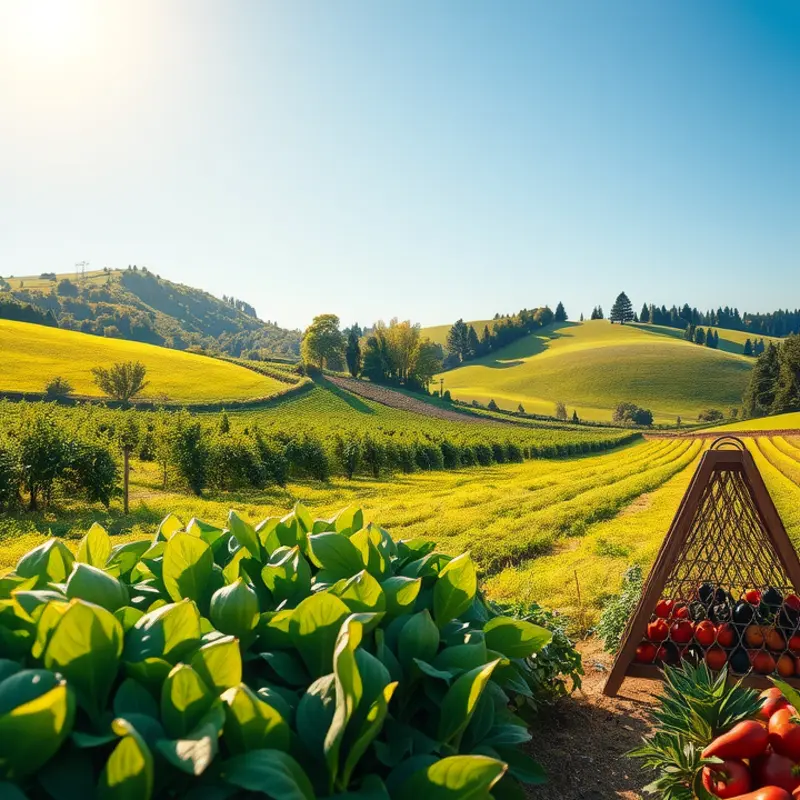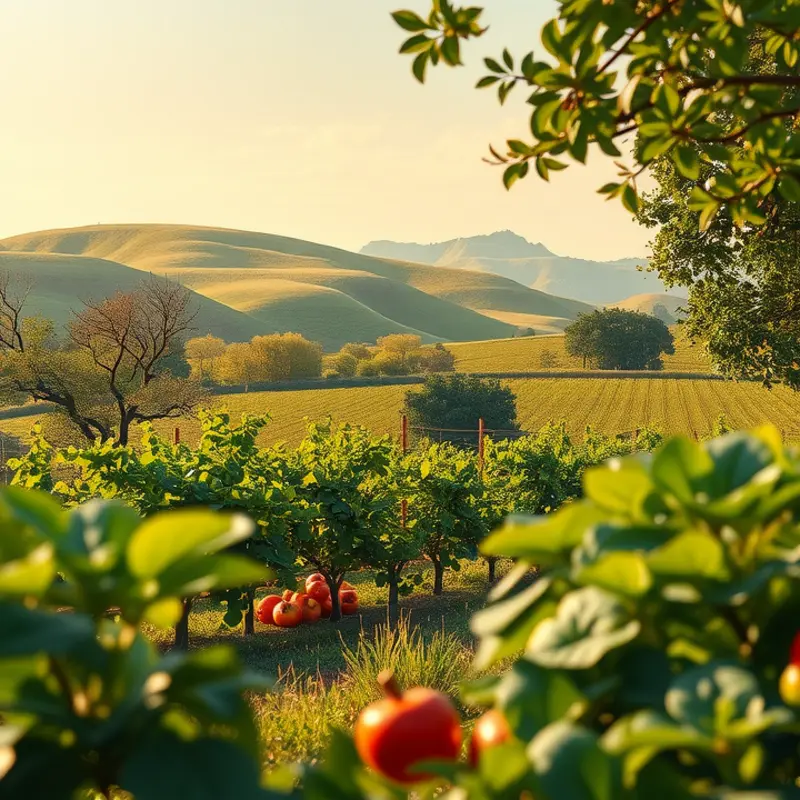Choosing sustainable herbs and seasonings is an impactful way to embrace eco-conscious living. By incorporating locally sourced, organic options into your cooking, you can not only enhance the flavor of your meals but also contribute to environmental conservation. This journey into the world of sustainable herbs and seasonings equips you with the knowledge to make better food choices that are good for both your health and the planet.
The Benefits of Choosing Sustainable Herbs

Selecting sustainable herbs and seasonings can transform your kitchen into an eco-friendly haven. Sustainable sourcing significantly influences our health, biodiversity, and the environment. Understanding these benefits motivates us toward conscious choices.
Firstly, sustainable herbs contribute to better health. Unlike conventionally grown herbs treated with synthetic fertilizers and pesticides, sustainably sourced herbs are exposed to fewer chemicals. This results in cleaner, healthier products. Reduced chemicals mean fewer toxins in our bodies, leading to improved well-being. This approach also encourages the use of diverse plant varieties, enhancing our nutritional intake.
In terms of environmental impact, conventional farming practices often deplete soil and water resources. The heavy use of agrochemicals adversely affects the soil’s natural fertility, necessitating more inputs to maintain yield levels. This creates a vicious cycle of dependency. Conversely, sustainable farming practices focus on crop rotation, natural pest control, and organic fertilization. These methods improve soil health and water retention, reducing the need for irrigation.
Biodiversity is another crucial area sustainable herbs positively impact. Monoculture in conventional farming reduces biodiversity, putting ecosystems at risk. In contrast, sustainable farming promotes diverse planting, preserving natural habitats. This diversity supports beneficial insects and wildlife, maintaining ecological balance.
Supporting sustainable herb producers also bolsters local economies. When we choose locally grown herbs, we’re reducing carbon footprints associated with transportation. Furthermore, investing in local businesses fosters community stability and contributes to regional economies.
Sustainable sourcing offers more flavorful and aromatic products. When herbs are grown in their natural seasons, with optimal soil and care, they develop fuller flavors. This not only elevates your culinary creations but also encourages a deeper appreciation for the natural artistry involved in sustainable farming.
To further embrace sustainability in your kitchen, consider exploring flavoring options that reduce waste. Incorporate ideas from low-waste cooking techniques to maximize herb usage and minimize leftovers.
By choosing sustainable herbs and seasonings, you make a powerful statement about the kind of world you wish to live in. Each choice contributes to a healthier planet, a thriving biodiversity, and a more resilient local economy. Thus, integrating these practices not only enhances your dishes but also promotes a sustainable future.
Practical Ways to Incorporate Sustainable Seasonings

Integrating sustainable herbs and seasonings into daily cooking can transform your kitchen into a hub of eco-conscious culinary delight. These practices not only enhance flavor but also support local ecosystems and reduce waste. Here’s how you can make sustainable choices easy and rewarding.
Begin by sourcing organic, locally grown herbs. Local farmers’ markets or community-supported agriculture programs are excellent starting points. These options ensure that your ingredients are fresh and grown without synthetic fertilizers, reducing your carbon footprint significantly. Partnering directly with local growers fosters community relationships and aids in supporting small-scale sustainable agriculture.
For the ambitious, starting your own herb garden presents a fulfilling and sustainable venture. Even if space is limited, herbs like basil, thyme, and cilantro thrive in small pots and window boxes. Indoor herb gardens can be nurtured on kitchen windowsills, where sunlight can fuel the growth of these culinary staples. Growing herbs at home offers the fresh taste unmatched by any store-bought alternative while also providing a steady supply that reduces the need for packaged and often imported varieties.
Preservation is another cornerstone of sustainable kitchen practices. During peak seasons, when herbs are abundant, drying and freezing can extend their life well into months where fresh options might be scarce. Drying herbs like rosemary and oregano can be done by tying them in small bundles and hanging them upside down in a dry location. Alternatively, using a dehydrator offers a quicker method, preserving their flavors while concentrating their potency.
Freezing is an excellent option for herbs like parsley, basil, and chives. Chop the herbs finely and place them in an ice cube tray, covering them with water or olive oil before freezing. Once frozen, transfer the cubes to a sealable bag for easy access when cooking. This approach minimizes waste and ensures you have flavorful seasonings on hand without the need for preservatives or additives.
These practical steps not only boost the sustainability of your kitchen but also enhance the tastes and aromas that define home cooking. By choosing sustainable herbs and learning to preserve them creatively, you play an instrumental role in promoting eco-friendly food systems.
For further tips on reducing waste during meal prep, you might find this resource on low waste cooking and prep useful.
Final words
Incorporating sustainable herbs and seasonings into your cooking not only enhances flavor but also contributes positively to the environment. By choosing local, organic options, you foster biodiversity and support local farmers, ensuring a greener planet for future generations. Remember that every small step counts, whether it’s growing your own herbs or opting for sustainable products at the store. Empower yourself with these choices, and let your culinary creativity flourish while making a significant impact on the environment.








